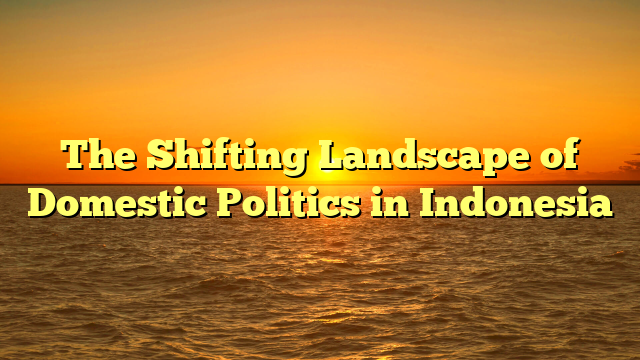In recent years, Indonesia’s domestic political scene has undergone a period of significant change, driven by evolving public demands, shifting alliances, and the challenges Pattimura4d of balancing democratic values with economic growth. As the world’s third-largest democracy and the most populous nation in Southeast Asia, Indonesia serves as an important case study of how a diverse and decentralized country navigates political transformation in the 21st century.
One of the most prominent themes in contemporary Indonesian politics is the growing role of regional governments. Since the decentralization reforms of the early 2000s, provincial and local leaders have gained substantial authority over governance, development, and budget allocation. While this has allowed for policies better tailored to local needs, it has also created disparities in infrastructure and public services between wealthier and poorer regions. Political parties at the national level must now work harder to coordinate with local power brokers, making political consensus both more complex and more critical.
The role of political parties themselves is evolving. Historically, Indonesian politics has been dominated by a few large parties, such as the Indonesian Democratic Party of Struggle (PDI-P), Golkar, and Gerindra. However, recent election cycles have seen the rise of smaller parties and independent candidates, particularly at the regional level. This fragmentation reflects the increasing diversity of political voices but also makes it harder to build stable governing coalitions.
Another defining feature of domestic politics in Indonesia is the strong influence of personality-driven campaigns. Charismatic leaders, whether at the national or provincial level, often attract voters more through personal reputation and perceived integrity than through strict party loyalty. This dynamic has brought both positive and negative consequences. On the one hand, it allows talented individuals from outside traditional party structures to rise to prominence. On the other hand, it can weaken policy continuity and institutional accountability, as leadership styles change dramatically from one administration to the next.
Public opinion has also become more influential, fueled by rapid digitalization and the spread of social media. Platforms such as Instagram, Twitter, and TikTok are now central arenas for political messaging, mobilization, and debate. This shift has empowered younger voters, who make up a large share of the electorate, but it has also raised concerns about misinformation and polarization. The government and civil society organizations are increasingly challenged to ensure that political discourse remains constructive and fact-based in the face of viral falsehoods.
In the policy arena, domestic politics is shaped by ongoing debates over economic inequality, infrastructure development, and environmental sustainability. The government has invested heavily in large-scale projects such as toll roads, ports, and airports to connect remote areas and boost commerce. While these initiatives have spurred growth, they have also sparked debates about land rights, environmental impact, and the balance between foreign investment and local control. Political parties and advocacy groups often use these issues to rally support, framing them in terms of national pride and long-term sovereignty.
Corruption remains a persistent concern in domestic politics. The Corruption Eradication Commission (KPK) has played a pivotal role in exposing high-profile cases, but recent legislative changes have raised questions about its independence and effectiveness. Public trust in political institutions is closely tied to how transparently and consistently these cases are handled. Efforts to strengthen the rule of law will be essential for maintaining democratic legitimacy.
Looking ahead, Indonesia’s domestic politics is likely to be shaped by generational change, economic modernization, and the need to address complex global challenges such as climate change. The younger generation, more connected and globally aware, is expected to push for policies that are progressive, transparent, and inclusive. At the same time, traditional political actors will continue to wield significant influence, ensuring that political transformation will be gradual rather than revolutionary.
Indonesia’s political journey illustrates the intricate balancing act between decentralization and national unity, modernization and tradition, openness and stability. As the country moves toward future elections, the choices made by political leaders and voters alike will determine whether Indonesia can harness its democratic strengths to build a more equitable and resilient society.
